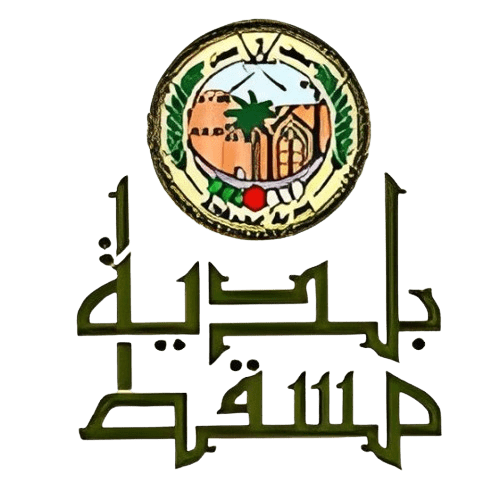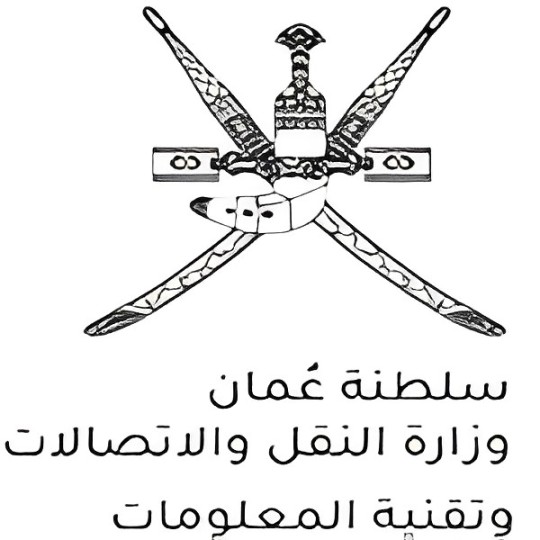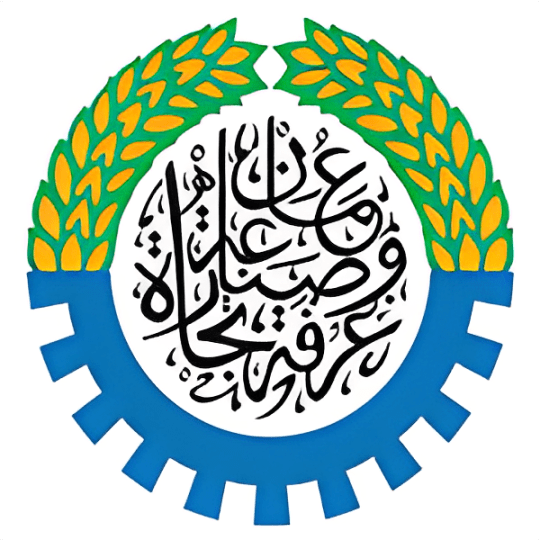+968 9596 3381
Phone Number
[email protected]
Email Address
Mon - Thu: 8:00 - 5:00
Online store always open
Phone Number
Email Address
Online store always open
WhatsApp Us Today
Drop Us an Email Today
Google Map Location
Saturday to Thursday

Introduction: ESR Compliance for Multinationals in Oman
What Is Economic Substance Regulation (ESR)?
ESR Rules in Oman: Legal Background & Purpose
Which Multinationals Are Affected by Oman ESR?
Relevant Activities Under Oman ESR
Core Requirements of ESR Compliance in Oman
Notification & Reporting Obligations – What to Submit
Operational Substance Tests: Real Activities in Oman
Record-Keeping & Documentation Standards
Penalties for Non‑Compliance with Oman ESR
Common Compliance Gaps & How to Avoid Them
How Multinationals Can Demonstrate Economic Substance in Oman
Interplay Between ESR and Pillar Two / Top-Up Tax
Revenue Thresholds & Applicability for Multinationals
ESR Governance Structure for Oman Operations
Audit and Independent Review Requirements
Benefits of ESR Compliance for Multinationals in Oman
Practical ESR Compliance Checklist
Conclusion: Navigating ESR with Confidence
FAQs on ESR Compliance for Multinationals in Oman
ESR compliance in Oman has become a critical regulatory milestone for international groups. Economic Substance Regulations Oman ensure that companies don’t merely use regional entities to reduce tax obligations without genuine local activity. For multinationals, achieving multinational ESR Oman compliance signals integrity and sustained market legitimacy.
This article explores Oman ESR requirements in depth—including notification rules, substance obligations, and governance—so your business can operate confidently under new regulations.
Economic Substance Regulations Oman are a set of legal rules requiring companies involved in certain activities to demonstrate substantial operations in the Sultanate. They aim to counter base erosion and profit shifting (BEPS) by ensuring that profits align with real economic value created locally.
Under Oman ESR compliance, affected entities must show real operational presence: local staff, physical office space, and meaningful management.
Adopted in late 2019, the Oman ESR regime aligns with OECD BEPS standards and GCC counterparts. The objective: to eliminate the use of shell companies to enjoy tax advantages without actual economic substance.
Key aims of Economic Substance Regulations Oman:
Protect Oman’s tax integrity
Comply with international transparency standards
Encourage genuine foreign investment with local commitment
Under Oman ESR requirements, multinationals operating through Omani entities that carry out any of the nine listed “relevant activities” must comply. These include both residential and non-residential entities. Specifically, multinational ESR Oman applies if:
The entity’s core income arises from relevant activities
The entity is tax resident in Oman
It is part of a broader international group
Non-profit, government, and wholly exempt entities are typically excluded, but most profit-driven multinational affiliates will likely fall under the rules.
Oman’s ESR targets nine business lines that can be used for base erosion. These include:
Banking
Insurance
Investment fund management
Lease-finance
Headquarters operations
Shipping
Holding company
Intellectual property
Distribution and service centers
If your Omani entity performs any of these, it triggers ESR Compliance Oman obligations.
To satisfy Oman ESR requirements, entities must fulfill:
Notification: Submit ESR notification before the deadline
Reporting: Complete annual ESR return
Economic substance: Meet activity-specific substance tests involving qualified staff, operational expenditure, physical assets, and local decision-making
Governance: Ensure board meetings and records are managed primarily in Oman
This is the minimum for multinational ESR Oman adherence.
Declares performance of relevant activities
Filed within six months of financial year end
Includes details: legal name, activity, registration number
A summary of substance test outcomes
Includes figures: employee count, expenses, assets
Filed along with audited financial statements
Missing Oman ESR notifications or returns exposes you to fines and compliance risk.
Each of the nine relevant activity types has unique substance test standards. Generally, they require:
Qualified employees physically present in Oman
Operating expenses incurred locally
Physical assets or premises in the Kingdom
Core income-generating activities handled by Omani staff
Strategic board-level decisions taken in Oman
This ensures that Economic Substance Regulations Oman translate into real economic benefit.
To demonstrate Oman ESR compliance, you should maintain:
Payroll records for Oman-based employees
Rental agreements and utility bills for local offices
Board meeting minutes and decision logs
Contracts and invoices tied to substance
Financial records tracking relevant expenses and revenues
Comprehensive documentation supports transparency and meets Oman ESR requirements during audits.
Failing ESR compliance in Oman can result in:
Financial penalties: fixed and escalating with repeated offenses
Suspension of commercial registration: mandatory business interruption
Reputational damage: affecting access to investors and contracts
Consistent compliance avoids these risks and safeguards your structural integrity.
Frequent failures include:
Missed Oman ESR notifications or late ESR returns
Insufficient on-ground staff or assets
Inadequate record-keeping
Core decisions taken outside Oman
Board meetings not held in Oman
Preventive measures:
ESR compliance calendar with deadlines
HR planning for local personnel
Internal audits of substance criteria
Follow these steps:
Appoint Oman-resident employees with appropriate qualifications
Rent dedicated office space and utilities
Maintain Omani bank accounts and incur real expenses
Conduct board meetings and strategy sessions locally
Allocate operational budgets to Oman-based activities
These actions fulfill multinational ESR Oman criteria and build local credibility.
Though separate regulations, Economic Substance Regulations Oman and Pillar Two (that sets a global minimum tax) work together. Strong ESR compliance can mitigate risk of additional taxes while ensuring tax jurisdiction integrity.
Implement them in tandem for a robust international compliance strategy.
Omani ESR can affect entities regardless of turnover. There are no minimum revenue thresholds by default—a small holding company, a financing affiliate, or IP vehicle may still fall under ESR rules. Multinationals should evaluate every Oman entity for compliance exposure.
For effective ESR Compliance Oman, establish:
Board oversight: formal Oman-based decision-making
Dedicated compliance officer: responsible for ESR monitoring
Audit committee involvement: independent review of substance
Documented policies: substance test criteria, escalation protocols
Sound governance transforms ESR from burden to assurance.
Auditors will assess major substance indicators. An independent review may be needed to verify compliance. Financial and substance disclosures must align with:
Corporate financial records
Oman ESR notifications and filings
Physical and management evidence
External reviews help multinationals maintain integrity under Economic Substance Regulations Oman.
✔️ Enhanced corporate reputation and investor confidence
✔️ Continued access to national tax incentives
✔️ Protection against cross-border tax avoidance investigations
✔️ Reduced risk of commercial registration actions
✔️ Better alignment with global tax transparency standards
Compliance becomes a competitive advantage, not just a legal requirement.
| Task | Description | Timeline |
|---|---|---|
| Identify entities | List Oman entities carrying relevant activities | Immediately |
| Appoint staff | Hire Oman-resident personnel | Within 3 months |
| Lease premises | Secure physical office space | Within 6 months |
| Arrange governance | Schedule and hold Oman-based board meetings | Quarterly |
| Maintain docs | Keep records aligned with substance tests | Ongoing |
| ESR filings | Submit notification and annual ESR return | As per financial closure |
ESR compliance Oman is not just about fulfilling regulations—it’s about embedding substance and local presence into your international structure. By aligning with Economic Substance Regulations Oman, multinationals can build trust, reduce risk, and reinforce Oman as a credible base for regional operations.
Consistency in meeting Oman ESR requirements, submitting timely ESR notifications, and keeping substance checks in order is the foundation for confident, long-term presence in Oman.
1. What is the deadline for the ESR notification?
The ESR notification must be submitted within six months of the financial year end for the first year your entity conducts a relevant activity.
2. Do all multinationals in Oman need to comply with ESR?
Only entities performing one or more of the nine listed relevant activities must comply under Oman ESR requirements.
3. Is there a financial penalty for late ESR filing?
Yes—late or missed notifications and returns carry fines, plus escalating penalties for repeated non-compliance.
4. Can group central functions claim substance in Oman?
Only if core income-generating activities take place locally. Central services do not usually satisfy substance test.
5. How many Oman-based employees are needed?
No fixed number, but enough suitably qualified staff to carry out the relevant activity is required.
6. Can Oman branch offices rely on the head office?
Branches must meet substance independently based on local activity, staff, and governance.
7. Are holding companies exempt from Oman ESR?
Holding companies that carry no other relevant activity may be exempt, but many hold IP or lease income, which triggers full compliance.
8. How do we report substance in ESR return?
Include data on revenue, staff, assets, and board meetings via your financial statements and annual return form.
9. Are audit or independent reviews mandatory?
Auditors are expected to confirm substance; an independent review may be requested by authorities as part of compliance monitoring.
10. Do I need a registered Oman office?
Yes—physical location is part of substance requirements, ideally under commercial lease in Oman.
11. How long should substance records be retained?
Retain documents for at least six years following the relevant financial year.
12. Are dormant subsidiaries exempt?
Dormant or inactive entities may still need to file notifications; exemptions depend on zero income and activity status.
13. How does ESR interact with Oman’s VAT?
They operate independently, but documentation and governance systems can serve both compliance tracks.
14. Can Oman ESR help with global tax audits?
Yes—a solid substance test reduces risk of adverse rulings by other jurisdictions or multinational audit adjustments.
15. Is there a threshold by size or revenue for ESR?
No—any entity conducting relevant activity must comply, regardless of size.
16. Who in the company should oversee ESR?
Typically, a senior compliance officer reports directly to the Oman-based board.
17. Can shared-service centers fulfill substance?
They can, if decision-making and core activities occur in Oman using local structures.
18. Does Oman ESR apply to non-resident companies?
Only if they have a registered branch in Oman conducting relevant activity, they must satisfy substance locally.
19. What happens if Oman ESR rules change?
Stay updated—regulators may modify tests, deadlines, or requirements. Compliance calendars must be flexible.
20. How does ESR compliance support corporate reputation?
Demonstrating substance enhances credibility with investors, government clients, auditors, and reduces scrutiny risks.









Let us handle your company registration, office setup, and licensing to ensure a seamless process.
At setupinoman, we specialize in assisting businesses with establishing their presence in Oman. Our services include:
Business Registration & Licensing – Handling all MoCIIP applications and approvals.
Legal Documentation & Compliance – Ensuring smooth document translations and notarization.
Banking & Office Setup – Helping businesses secure bank accounts and office leases.
Visa & Employee Services – Managing work permits and Omanization requirements.
What is the minimum investment required to qualify for a residency visa in Oman?
The minimum investment typically starts from OMR 20,000 for standard investor visas. However, the Golden Visa program requires investments starting from OMR 250,000.
Can I own 100% of my business in Oman as a foreign investor?
Yes, Oman allows 100% foreign ownership in most sectors, especially under the Foreign Capital Investment Law. Some regulated sectors may require local participation.
Is real estate investment enough to obtain a residency visa in Oman?
Yes, under the Golden Visa category, purchasing property worth at least OMR 250,000 can qualify you for long-term residency.
What is the difference between the Golden Visa and the Standard Investor Visa?
Golden Visas offer longer residency terms (5–10 years), faster processing, and broader eligibility, while Standard Investor Visas require lower investment but shorter duration and renewals.
How long does the investor visa process take?
On average, it takes 4 to 8 weeks, depending on security clearance, company registration, and documentation accuracy.
Can I apply for residency before launching my business?
You must complete company registration and capital deposit before applying for the residency visa under the business investor category.
Is it necessary to open a corporate bank account in Oman for this process?
Yes, you need to deposit the minimum share capital into a corporate account to receive the capital deposit certificate, which is essential for visa processing.
Are there any age or nationality restrictions for investor visas?
There are no age restrictions, and citizens from most countries are eligible, although background checks and financial verification are required.
Do I need a physical office in Oman for my business registration?
Yes, a registered office address is mandatory — this can be a virtual office, shared workspace, or physical premises, depending on your business type.
What types of businesses are best for investment-based residency?
Tourism, tech, healthcare, logistics, real estate development, and manufacturing are some of the most attractive sectors for foreign investors.
Is free zone investment also eligible for residency visas?
Yes, businesses established in Oman’s free zones like Duqm or Salalah can qualify, though some limitations apply based on visa type and activity scope.
Can I bring my family with me under an investor visa?
Yes, investor visa holders can sponsor family members including spouse and children, subject to documentation and proof of income.
What are the key documents required for an investor visa application?
Passport copies, security clearance, MOA, business license, capital deposit certificate, tenancy contract, and recent photographs are commonly required.
Do I need to hire local employees?
While not mandatory in all cases, certain sectors may require a minimum Omanization rate to qualify for full operational licensing and staff visa issuance.
What happens if I close my company after receiving the residency visa?
Your visa may be cancelled unless you transfer your sponsorship or obtain a different qualifying residency basis (e.g., real estate or employment).
How long is the investor visa valid?
Standard visas are issued for 2–5 years and renewable; Golden Visas are valid for 5 or 10 years, depending on the investment category.
Can I operate multiple businesses under one investor visa?
Yes, but you must ensure each entity is properly registered, and you hold a qualifying ownership percentage in each.
Are there any tax advantages for foreign investors?
Oman offers no personal income tax and competitive corporate tax rates (15%). Free zones also offer tax holidays for up to 10 years.
Can I change business activities after obtaining a visa?
Yes, but you must update your commercial registration and possibly re-obtain approvals or licenses depending on the new activity.
Is a local sponsor required for mainland businesses?
Not anymore in most sectors. Since the law change in 2020, most businesses can be 100% foreign-owned without requiring a local partner.
How do I maintain my visa status if I spend time abroad?
Investor visas typically allow you to spend time abroad, but extended absence (6+ months) may affect renewal or validity, unless explained.
Are digital or online businesses eligible?
Yes, tech and e-commerce businesses are highly encouraged and eligible for both investor and long-term residency options.
Do I need to show ongoing revenue to maintain the visa?
Not always, but inactivity or lack of compliance may risk rejection during renewal. Annual filings and proof of operation are recommended.
Can I apply for residency through an existing business I acquire?
Yes, provided you meet ownership thresholds and the business is compliant with all legal, tax, and licensing requirements.
What is the role of the Oman Investment Authority in this process?
OIA supports large-scale strategic investments, especially in sectors aligned with Vision 2040. Smaller businesses work mainly with MOCIIP and ROP.
Is the visa tied to one company or can I invest in multiple?
You can invest in multiple companies, but your primary residency visa will be tied to the company where you have majority stake or initial approval.
Do I need health insurance for the investor visa?
Yes, valid health insurance is a prerequisite during visa application and renewal processes.
How much capital is required for the Golden Visa through real estate?
You must invest at least OMR 250,000 in approved properties; for 10-year visas, the amount increases to OMR 500,000 or more.
What is the role of the Royal Oman Police (ROP) in this process?
ROP handles visa issuance, background verification, residency cards, and security clearances.
Can I get citizenship through business investment in Oman?
Currently, Oman does not offer direct citizenship-by-investment programs. However, long-term visa holders may be eligible for permanent residency or naturalization under exceptional circumstances.
Fill out our quick and easy contact form below. Briefly tell us about your vision and goals, and we’ll be in touch shortly to discuss a personalized plan for your success.
Al-Khuwair, Muscat, Sultanate of Oman